PANERIS at CEBC 2025: Where Neuroscience Meets AI
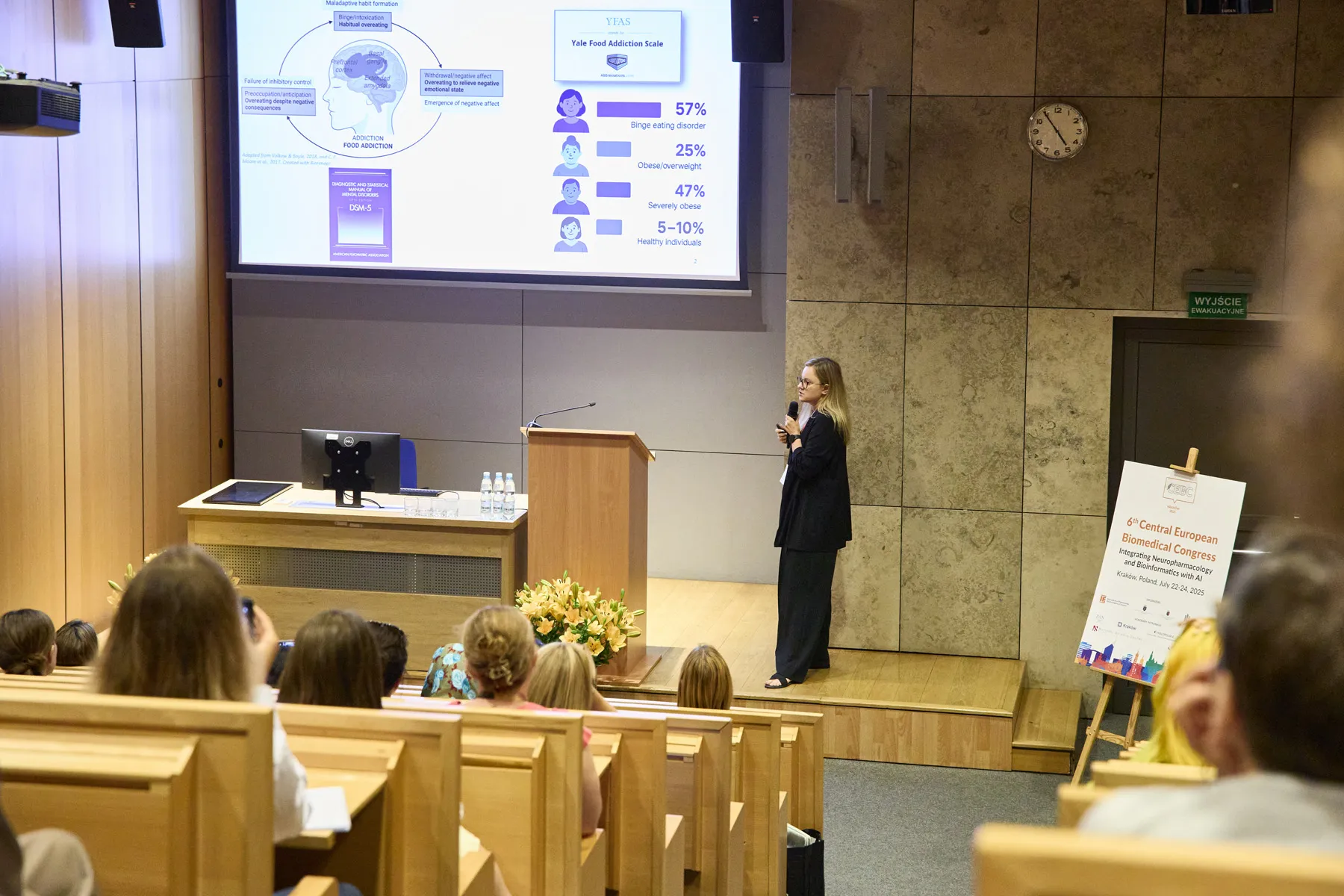
Krakow, 22–24 July 2025 – The PANERIS project took the spotlight at the 6th Central European Biomedical Congress (CEBC 2025), held at the Auditorium Maximum of the Jagiellonian University in Krakow, Poland. Under the theme “Integrating Neuropharmacology and Bioinformatics with AI” CEBC 2025 gathered over 300 participants from 23 countries, including 56 invited speakers and a dynamic community of early-career researchers.
With 15 thematic sessions, 74 posters, and over 130 published abstracts, the Congress served as an exceptional platform for international exchange and collaboration — perfectly aligning with the PANERIS project’s interdisciplinary mission to integrate neuroscience, AI, and bioinformatics for advancing brain health.
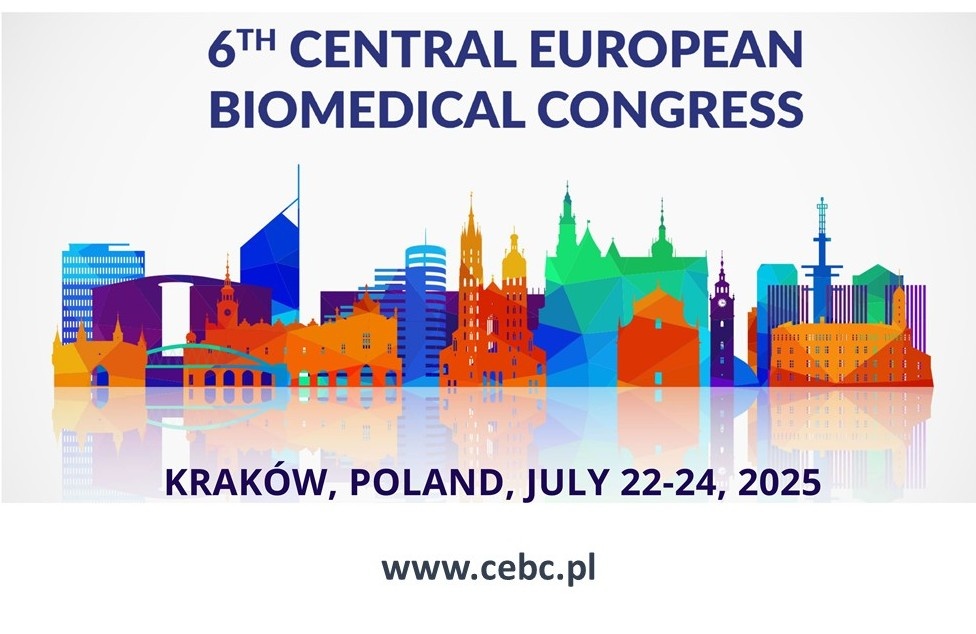
The PANERIS Session: Exploring Brain Resilience
One of the key highlights of CEBC 2025 was the thematic session titled “Brain resilience”, chaired by Prof. Jan Manuel Rodriguez Parkitna, PhD (Maj Institute of Pharmacology, Polish Academy of Sciences), PANERIS Project Principal Investigator of IP PAS.
The session, focusing on brain resilience, featured four outstanding presentations from PANERIS partners and other IP PAS collaborators:
- Prof. Sara Xapelli (University of Lisbon, Portugal; GIMM – Gulbenkian Institute for Molecular Medicine):
Neurogenesis and Depression – Exploring the Therapeutic Potential of Cannabinoid CB2 Receptors and Physical Exercise - Muriel Koehl, PhD (University of Bordeaux, France; Neurocentre Magendie):
Adult Neurogenesis and Stress Resilience - Solveiga Samulėnaitė, PhD Candidate (Vilnius University, Lithuania; Pompeu Fabra University, Spain):
Cravings from Within – Gut Microbiota Drive the Development of Food Addiction - Anna Solarz-Andrzejewska, PhD (Academy of Physical Education, Poland):
Shaping Brain Resilience to Stress – The Roles of Sex and Blood–Brain Barrier Dynamics
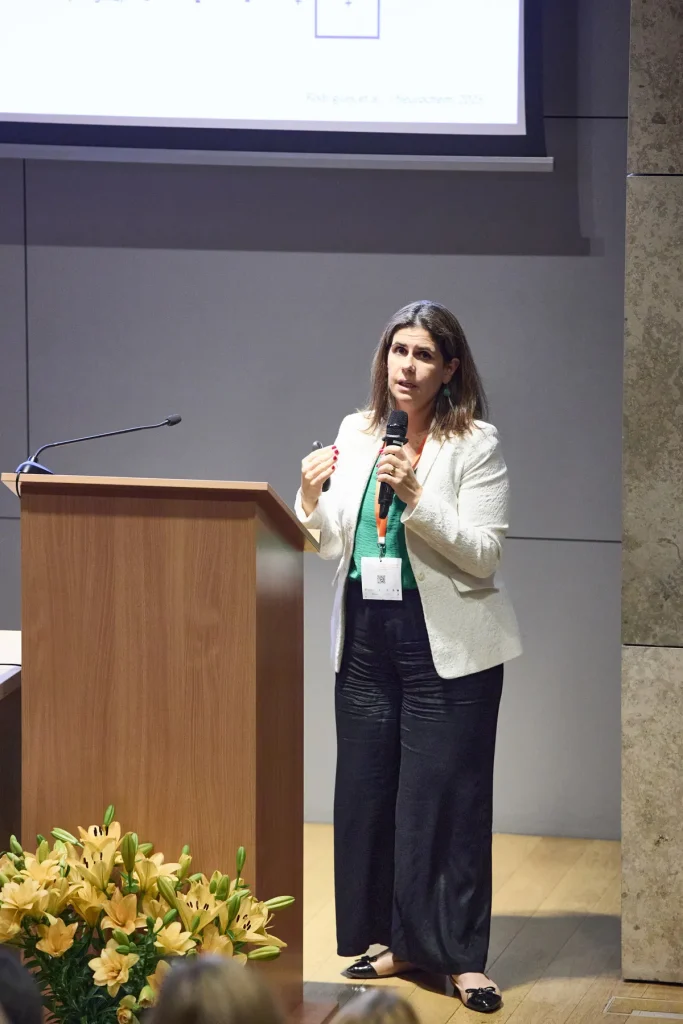
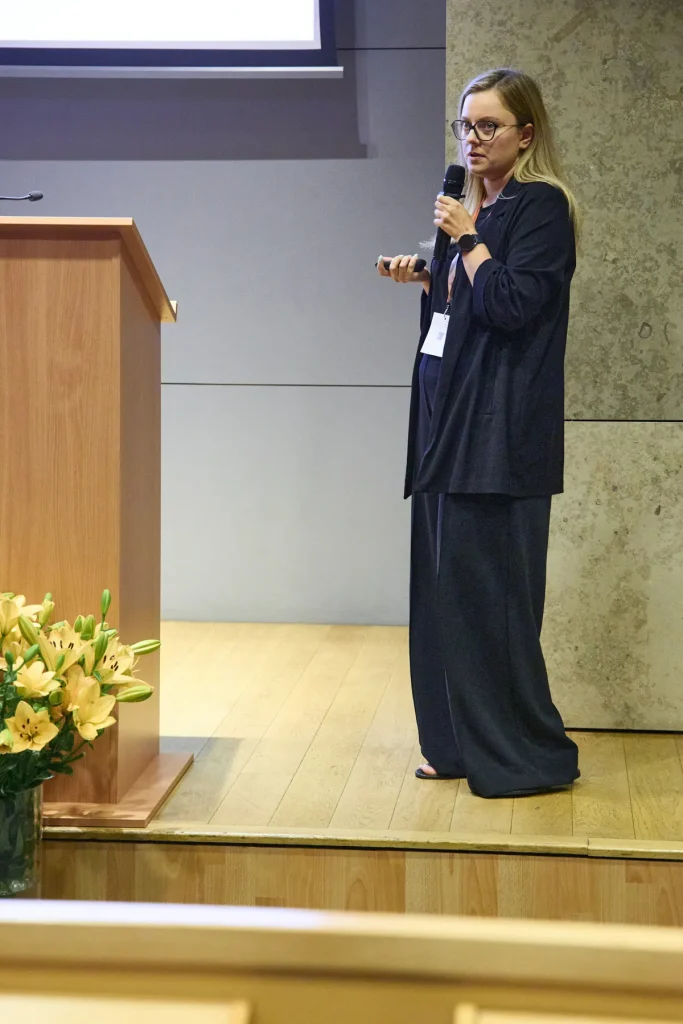
This session not only showcased the scientific excellence of PANERIS researchers but also strengthened the project partner’s visibility within the European neuroscience community.
Scientific Matchmaking and the Power of Collaboration
Events such as CEBC 2025 play a crucial role in scientific matchmaking — connecting researchers across disciplines, institutions, and generations. By bringing together experts in neuroscience, pharmacology, bioinformatics, and AI, the Congress provided a fertile ground for new collaborations to emerge.
Through informal discussions, networking sessions, and cross-disciplinary presentations, scientists had the opportunity to exchange methodologies, share resources, and identify complementary expertise. For early-career researchers, the event served as an invaluable environment to build professional relationships and explore participation in future research consortia and funding opportunities. For PANERIS, such meetings reaffirm the importance of open scientific dialogue and knowledge exchange as catalysts for innovation. The project benefits not only from presenting its own results but also from engaging with other cutting-edge initiatives that can inspire new approaches to understanding and enhancing scientific research in this area.
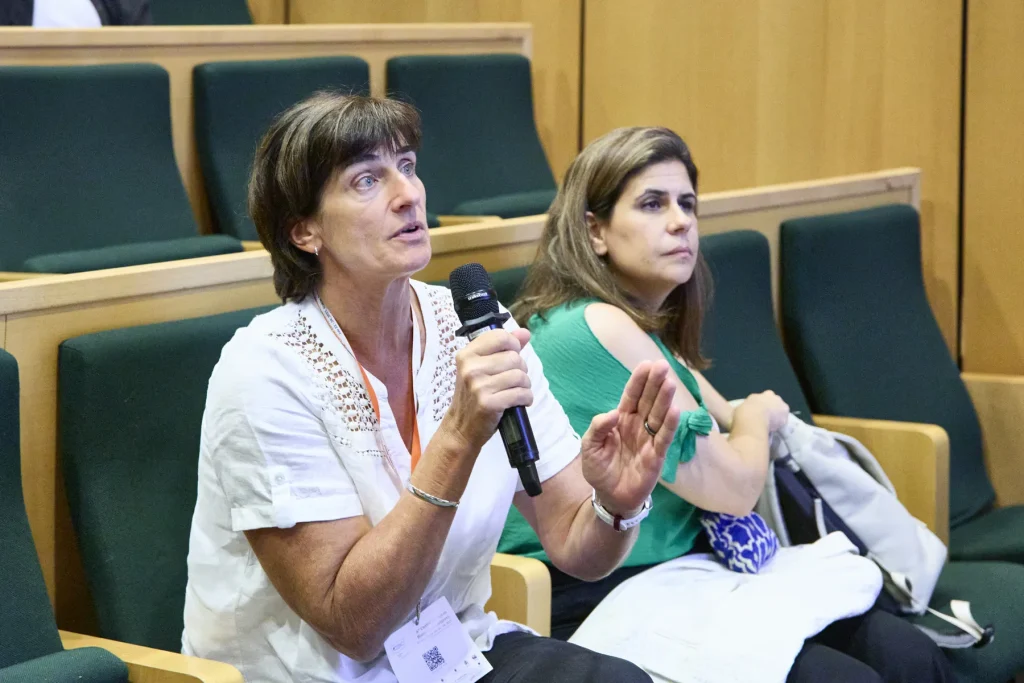
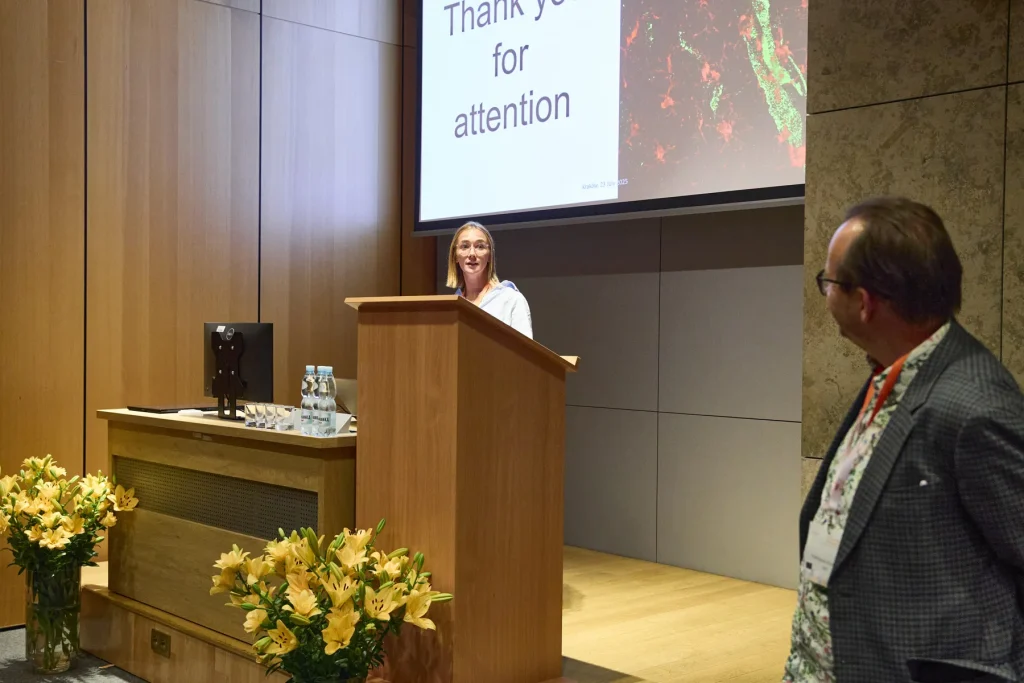
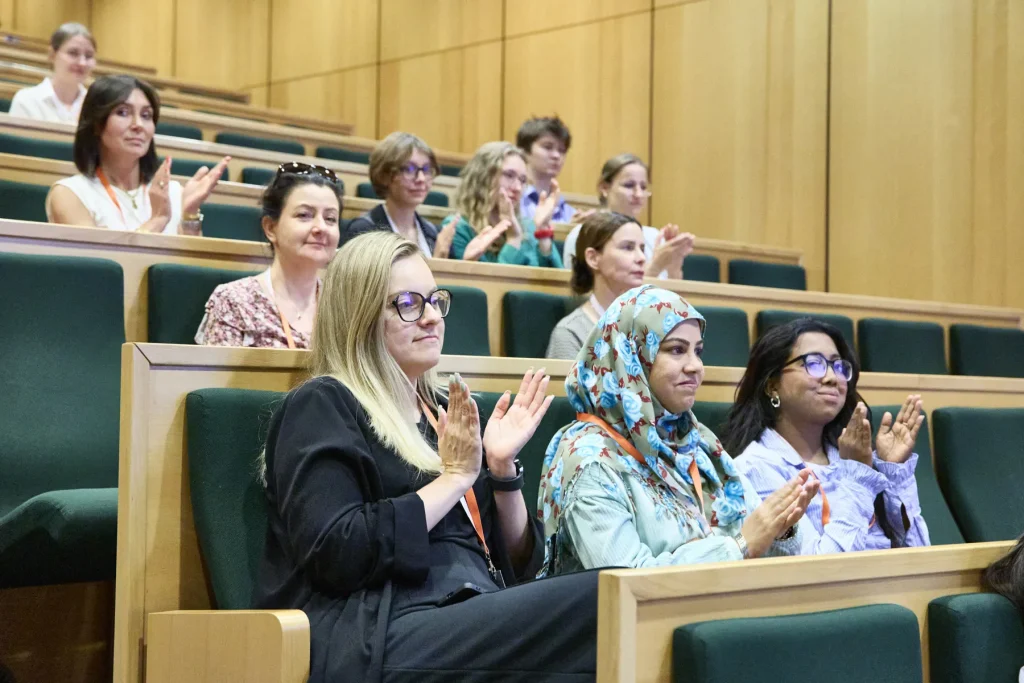
Fostering European Collaboration
Beyond the PANERIS session, CEBC 2025 offered valuable networking opportunities, including a presentation on ERC grant funding led by Dr. Janka Matrai, Scientific Advisor at the European Research Council Executive Agency (Life Science Unit, Brussels). This discussion highlighted new funding perspectives and opportunities for researchers pursuing innovative biomedical projects.
Looking Ahead
The international collaborations and scientific discussions established during CEBC 2025 underline a shared vision: translating interdisciplinary science into tangible medical solutions. PANERIS partners remain deeply committed to advancing this goal — harnessing the power of neuroscience and AI to promote better health outcomes.
Acknowledgments
The PANERIS Session, Exploring Brain Resilience, held during the 6th Central European Biomedical Congress (CEBC 2025), was organized by the Maj Institute of Pharmacology, Polish Academy of Sciences, as part of the PANERIS project.

The opinions and views expressed are solely those of their author(s) and do not necessarily reflect those of the European Union or of the European Research Executive Agency (REA). Neither the European Union nor the REA can be held responsible for them.






